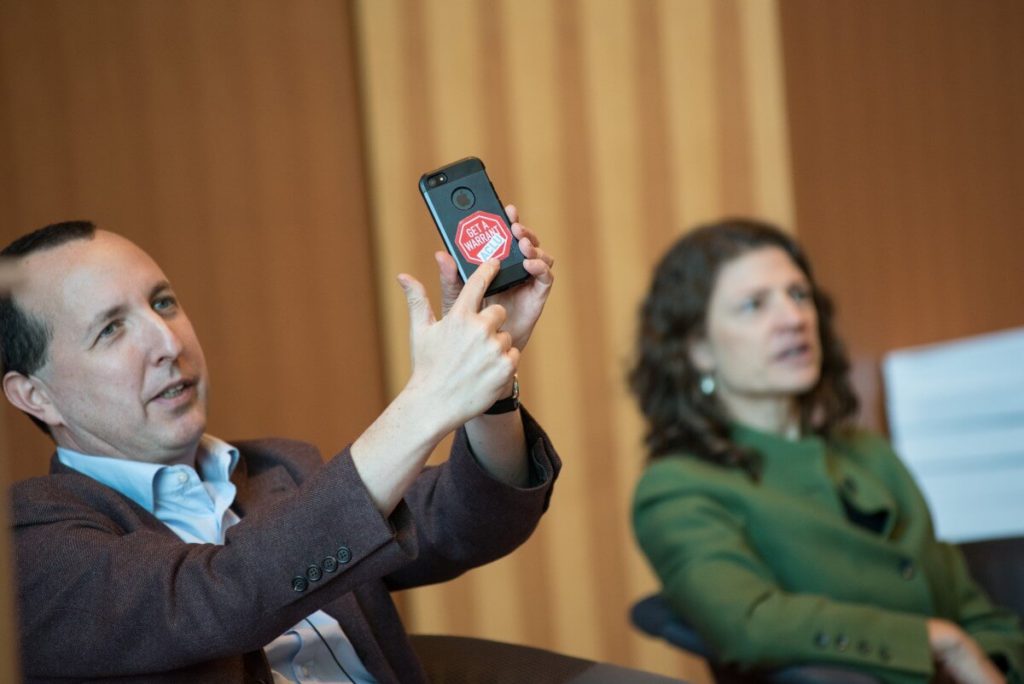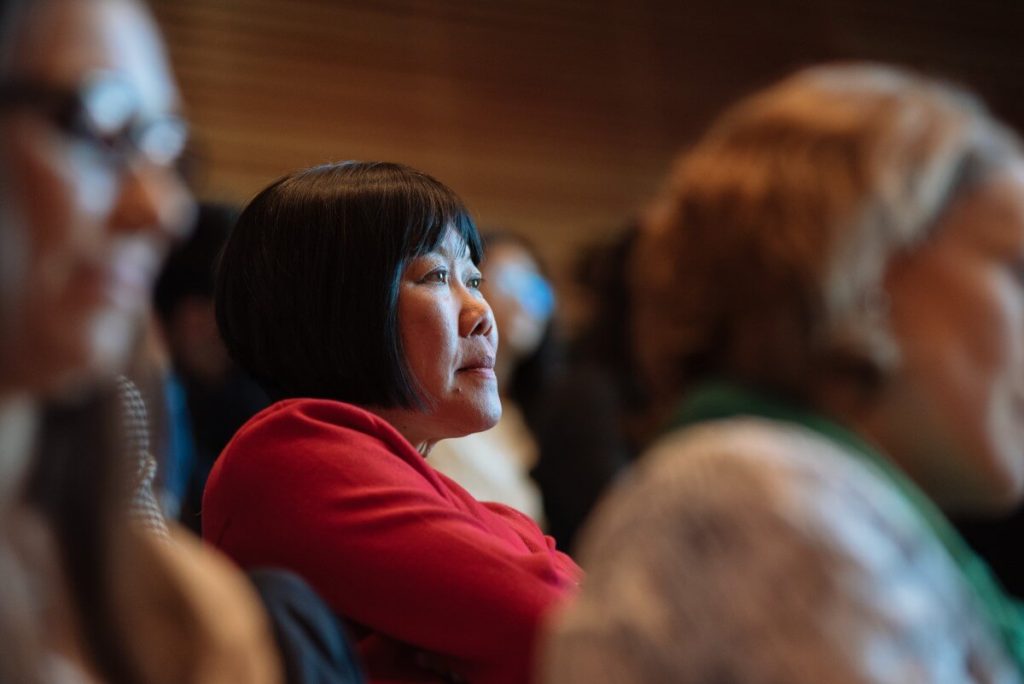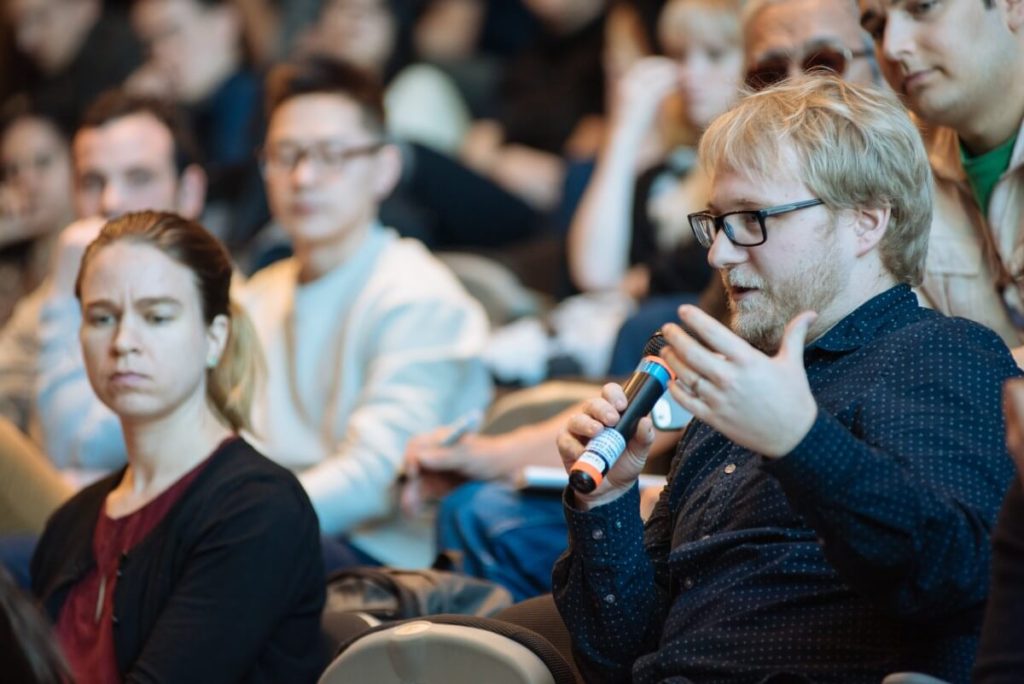On March 22, 2016, the Allard Prize and the Centre for Business Law hosted an open forum with Ben Wizner, Director of the Speech, Privacy and Technology Project at the American Civil Liberties Union (ACLU) in New York City and principal legal advisor to National Security Agency (NSA) whistleblower Edward Snowden.
Wizner’s presentation challenged the claims that Edward Snowden’s act of conscience had been in vain, that others would be foolish to follow his example, and that the growing movement for reform would not succeed. Wizner argued, instead, that Snowden’s disclosures had actually strengthened the institutions that are supposed to serve as a check on the reach of the American national security state, specifically the courts, the U.S. legislative branches, and the media.

Ben Wizner shows the ACLU’s “GET A WARRANT” sticker on his phone.
Wizner also noted that the Snowden revelations have driven an important wedge between big technology corporations, such as Apple and Google, and American security agencies. Instead of secret collaboration on mass surveillance programs such as the PRISM program, there are increasing signs, such as the ongoing legal dispute between Apple and the FBI, that Snowden’s revelations have actually pushed these two into “adverse corners.” Wizner viewed this as a positive development.
Wizner also reflected on the possibility that other acts of law breaking may need to be undertaken in the future to both preserve, and improve on, current models of surveillance and intelligence oversight.

During the question and answer period, Nicole Barrett, Executive Director of the Allard Prize and Director of the International Justice and Human Rights Clinic, asked if there was any danger in the civil rights community siding with technology companies that collect and store extensive data on their customers.
Wizner replied, “I’m comfortable making alliances with people I may not see eye to eye with on everything to take on other powerful adversaries.” He continued, “we wouldn’t have had legislative reform in the U.S. if we didn’t have an alliance of liberals and right wing libertarians who were worried about government surveillance, perhaps for different reasons.”
When asked by an audience member if governments could legitimately keep anything secret, Wizner responded that he believes the government has the obligation to keep some information secret, but it is not so simple because, “sometimes the revelation of information about government activity may cause harm and yet it’s still very necessary for the public to know it.” He further argued that government officials cannot be the only ones to control information. There are times when the judiciary and even the public need to judge the government’s conduct. “[The] important point is that we cannot allow government officials to be the only ones to control the information that…we are going to have to judge their conduct.”

An Allard Hall law student participating in the question and answer period.
When asked how Snowden has dealt with becoming such a prominent figure, Wizner replied that he thinks Snowden would have preferred to have given the information to the journalists and then fall back into obscurity. Snowden only emerged as a public figure because he was persuaded that the reform movement would benefit from his iconic presence, as he was the only person who could command a large audience to discuss issues about surveillance and democracy.
Wizner added, “He expected that he would be in prison or worse and the fact that he’s able to participate in this global debate, that a few times a week, by video conference, he can appear somewhere in the world and give a live talk…is really quite remarkable and so, on balance, his life is really rich.”
In conclusion, Wizner challenged the audience: “[Edward Snowden] doesn’t ask for, or deserve, pity. He made the choice he felt he needed to make. How many of us can say that?”


